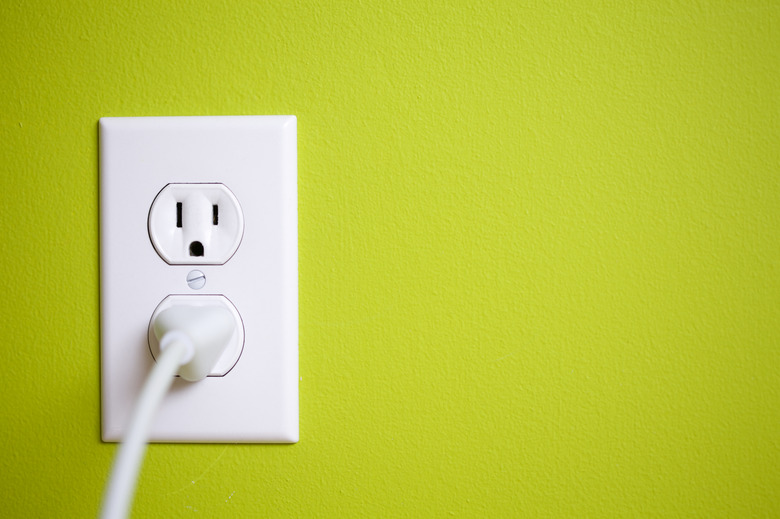What Are The Causes Of A Shorted Out Electrical Outlet?
Figuring out the cause of an electrical short is the first step in correcting the problem. Unchecked electrical problems can cause electrical shock and home fires, so you don't want to ignore a short when you notice it. If the electrical breaker for the outlet repetitively opens or your GFCI outlet won't reset, you may have a short in the circuit. Leave the breaker in the off position while you try to track it down.
Outlet Wiring Basics
Outlet Wiring Basics
A 120-volt electrical outlet uses three wires to deliver the electricity safely. The black hot wire sends the power from the electrical panel to the outlet. The white neutral wire provides the path back to the source, which is necessary for electricity to work. The green or bare ground wire acts as the backup safety system. In the event of a short circuit, the ground wire provides a safe path back to the earth. This reduces the likelihood of a person being electrocuted.
What Is an Electrical Short?
What Is an Electrical Short?
An electrical short happens when the hot wire comes into contact with the neutral or ground wire. This lets the electricity travel through the circuit with almost no electrical impedance. A circuit with no impedance draws excessive current and can create excess heat, which can cause a melted or burnt wire. Short circuits can also cause sparks, fire and smoke. A short can also be caused when the hot wire comes into contact with a metal electrical box. This is because the box is grounded to the earth, which completes the circuit.
Outlet Short Circuit
Outlet Short Circuit
A short in an outlet happens when one of the wires comes loose and the ground or neutral wire makes contact with the black hot wire. That contact causes the outlet to short out. You can check this by first turning off the power at the electrical panel. Always double check to make sure the power is off so you don't get shocked. Remove the outlet cover to inspect the connections. If the electrical wires or terminals are burnt or disconnected, the outlet needs to be replaced.
Other Outlet Short Out Considerations
Other Outlet Short Out Considerations
In some cases, the outlet itself is not the source of the short. A short can occur at any electrical connection in the entire circuit. This affects the power supply to the outlet because its circuit is interrupted. Finding a short requires some trial and error. An electrician would typically start at the power source, then work his way along the wires, looking closely at each connection.
A short circuit in your outlet is a potentially dangerous situation. Even if the situation doesn't cause a fire, the excess heat can cause burns. Let your electrician handle the work to avoid any injuries or additional damage.
